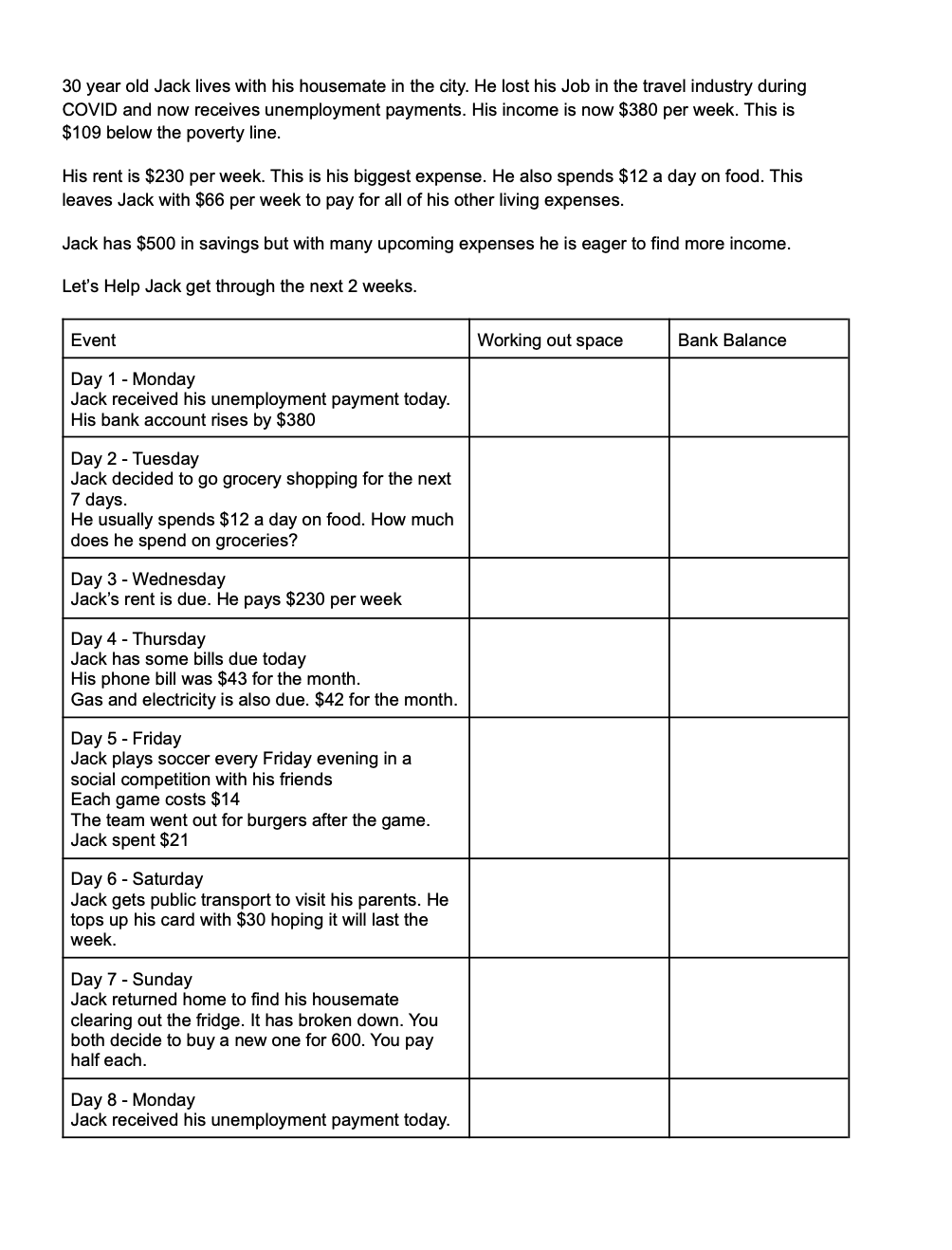
Poverty and Inequality in Australia - Making Ends Meet
Lesson5 of 5 in this unit
PrimaryYear 5 - 6MathematicsSocialEqualityHomelessnessHuman RightsSocial Action
Summary
Lesson Guides and Printables
Lesson Plan
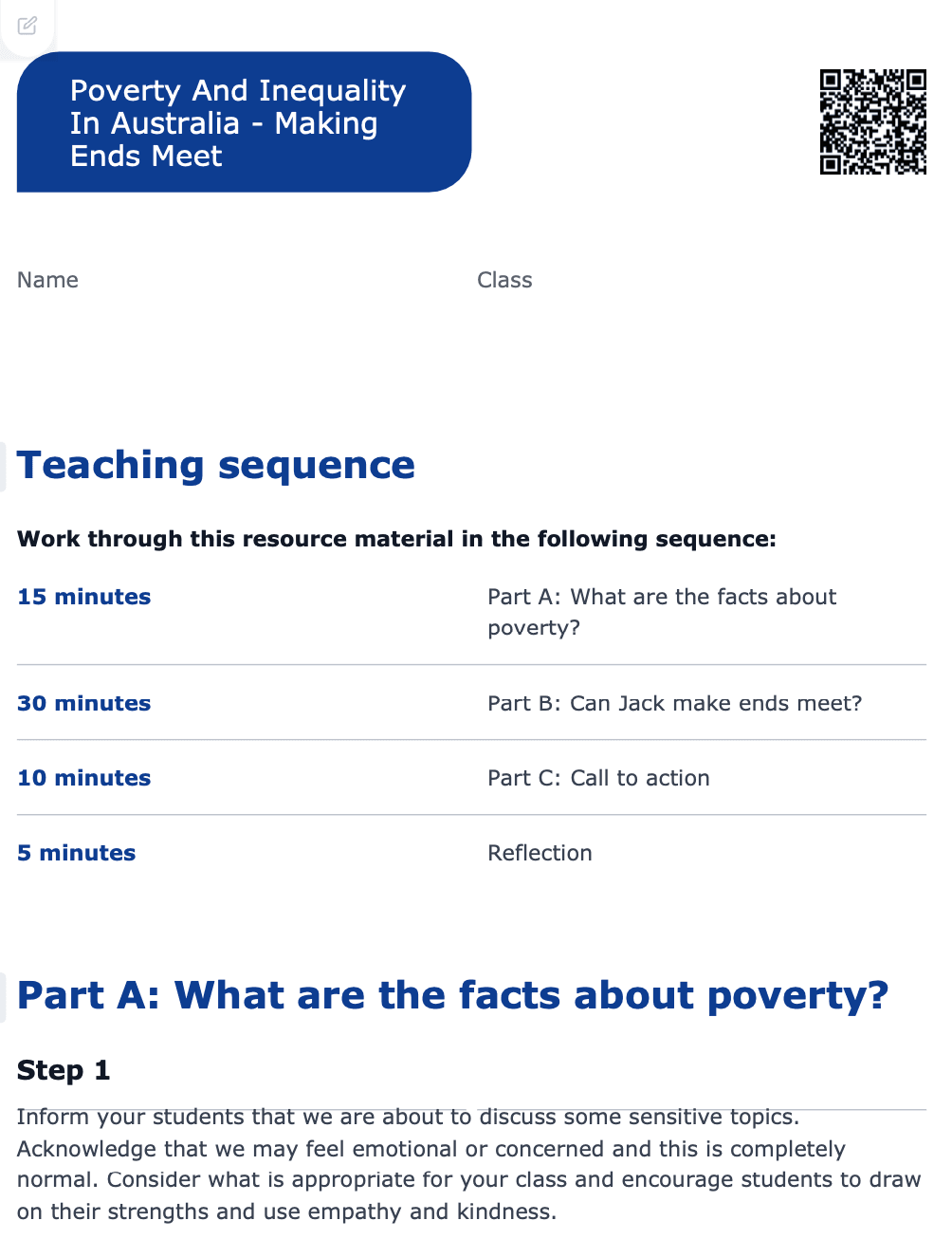
Student Worksheet
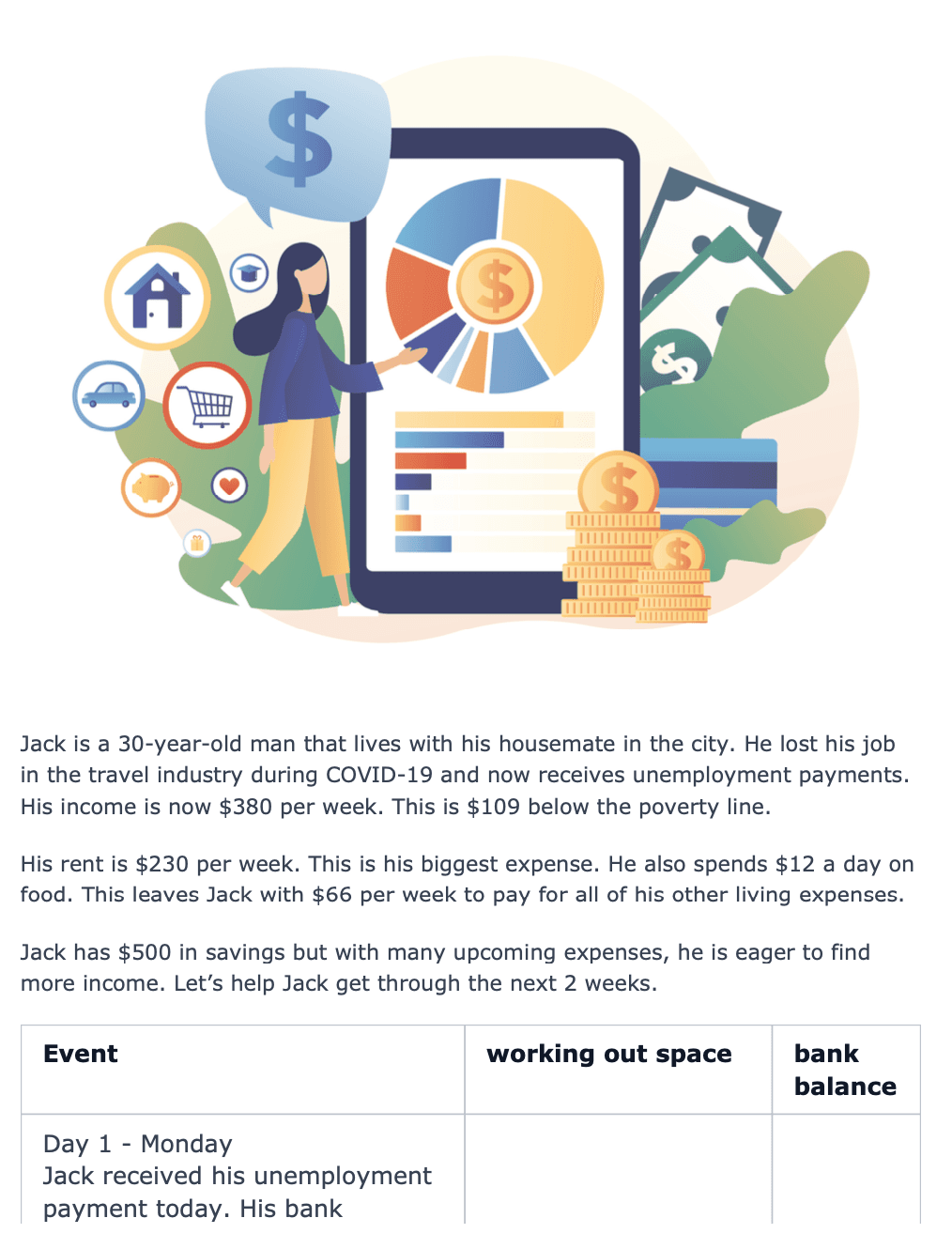
Teacher Content Info
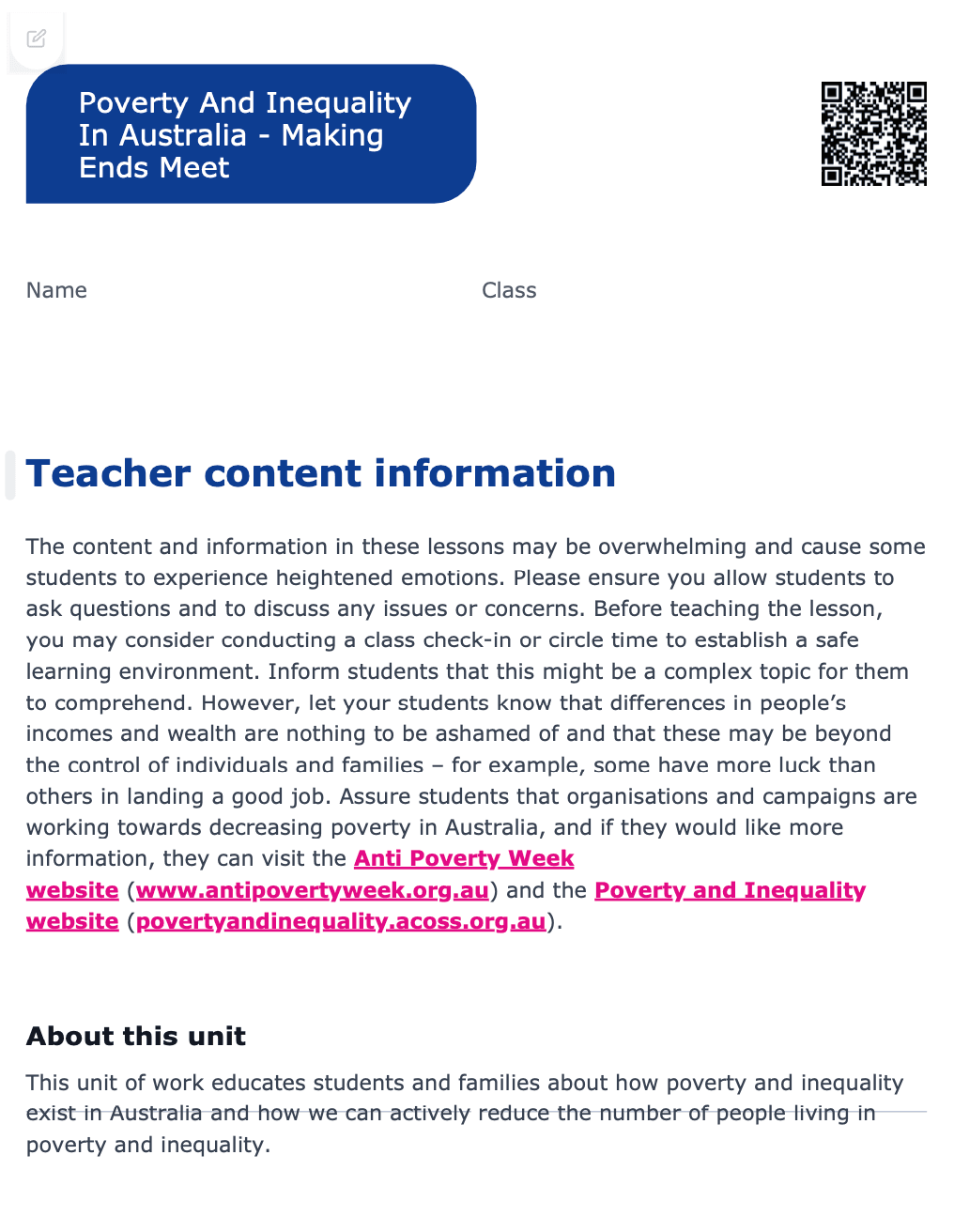
Jack Simulation Task Answers
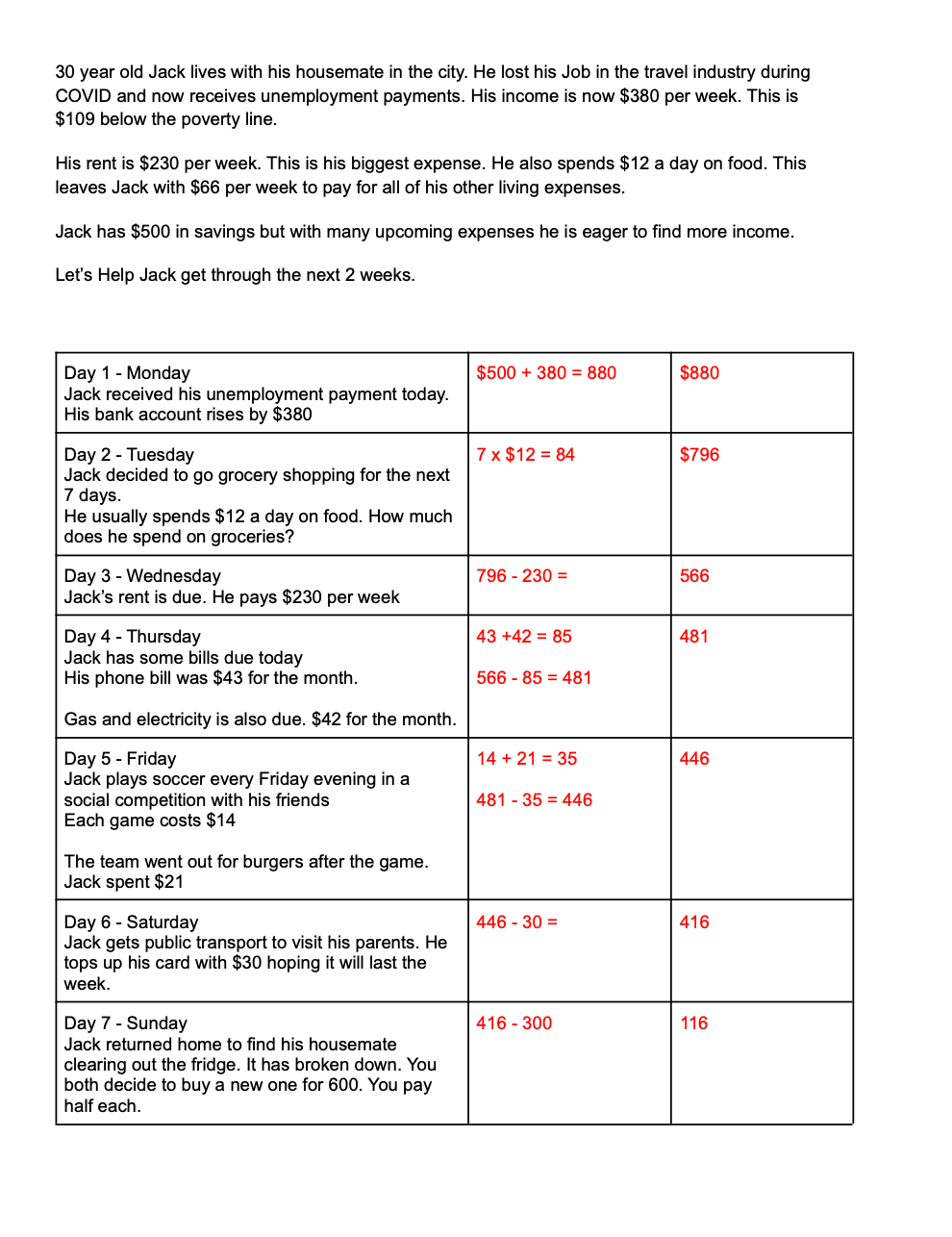
Jack Simulation Task Worksheet
